THE vast majority of Britons say they are comfortable with having a south Asian as their prime minister.
A survey by the think-tank, British Future, found that a third of the British public would see an Asian prime minister as a good thing for our country.
At least eight in 10 Britons say they are comfortable with having a south Asian as their prime minister.
“Nobody can guess whether we will have an Asian or black prime minister before 2032,” its director, Sunder Katwala writes in this week’s Eastern Eye.
“But 84 per cent of the public would have no problem with that, with only a surly one in 10 opposed. Ethnic diversity has become so much a new normal at the top, across political parties, that this can only now be a matter of time.”
The prime minister, Boris Johnson, already boasts about having the most racially diverse cabinet in the history of British politics. Two of them, Rishi Sunak and Priti Patel, hold two of the top four government posts, as chancellor and home secretary, respectively.
Until the party gate scandal and controversy over his wife’s tax status and his American green card, Sunak was seen as a future prime minister.
The cabinet also has former leadership contender, Sajid Javid, as the health secretary. Javid has previously run several government departments including the Treasury and the Home Office – two of the four highest in the land.
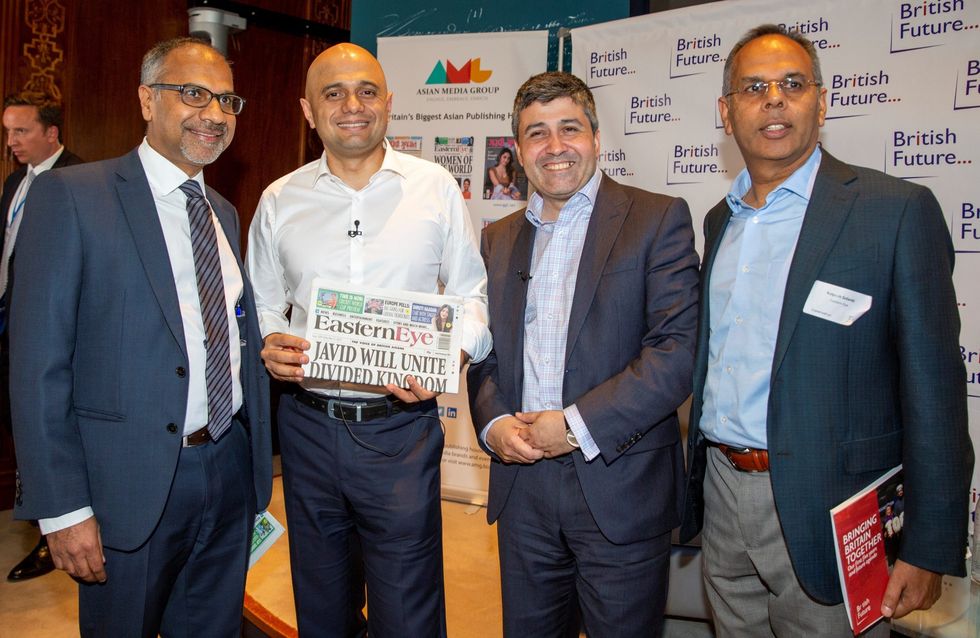
“I think Britain is ready for an Asian prime minister,” Paul Uppal, former MP for Wolverhampton South-West, told Eastern Eye. “All three of them are very, very capable individuals. And I think they bring their Asian background and heritage in their presentation and communication skills, which I think makes them better politicians.
“When you look at the way Asian communities have integrated into the UK, it’s been one of the great success stories. I think the British public, are probably more receptive to this idea than a lot of other places in the world. I think they’re ready for it. I think the whole country would be quite warm and quite receptive to the idea of an Asian prime minister.”
But Katwala warned that institutions “with economic and cultural power need to catch up” with what the government was doing in promoting racial diversity.
In terms of ethnic representation overall in the UK’s workforce, Uppal added: “Obviously, there are issues and there are still areas where there’s under representation. The Asian community is under-represented in certain areas, and yet, conversely, we’re overrepresented in other areas.
“There seems to be some professions that second generation, third generation, Asians seem to gravitate towards. But there seems to barriers in other professions which lead to lower representation.”
The British Future report urges action rather than talk when it comes to improving racial equality.
“One early legacy of the anti-racism protests of 2020 has been a broader sense among black and Asian Britons of overdue conversations beginning to take place, especially at work but the jury remains out on how far talk will turn to action,” it said.
Another study reached similar conclusions. A survey by diversity and inclusion training providers, Pearl Kandola, found that 42 per cent of Asians and 60 per cent of black people said they had experienced racism in the workplace.
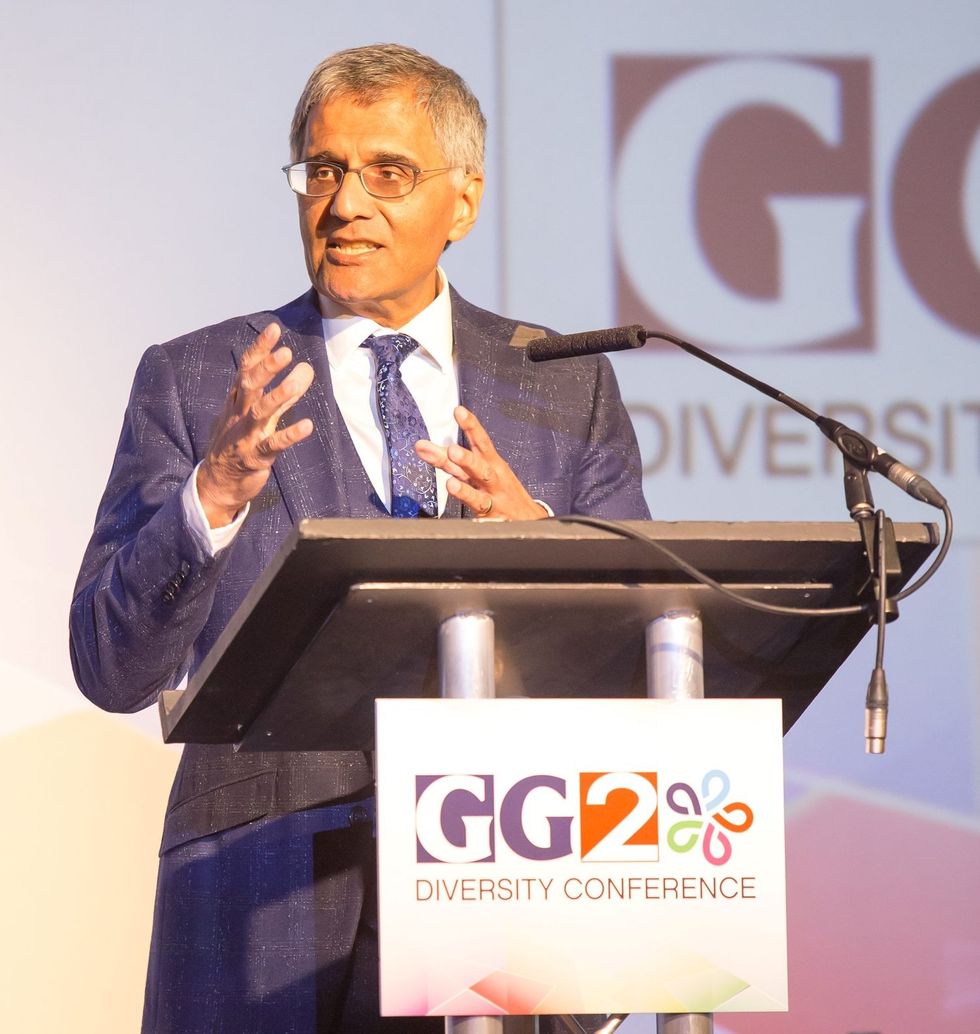
“I think a significant part of the issue is that too many people in too many organisations think that race isn’t a problem,” Binna Kandola told Eastern Eye.
“There needs to be a recognition, that racism is not non-existent, it’s acknowledged, it still exists.
“Organisations need to actually create an environment where people feel safe enough to speak up when these things happen. So, when an individual is in a situation and they’re feeling uncomfortable about what’s being said or done, they don’t feel able to speak up about it, then you have an issue. The issue is that you haven’t created an environment that is psychological safe, where that behaviour can be challenged.”
Only a third of those surveyed by British Future think things will improve on race in this decade, while a quarter of ethnic minority adults and a fifth of white respondents fear things will get worse.
It added that the rising educational success of new generations of graduates makes it ever more urgent to tackle ethnic disparities in recruitment, based on the name on your CV.
But Kandola says ethnic minority graduates face an uphill battle to attain leadership roles in organisations right from when they leave university. “Our research shows that six months after graduation, minority graduates are less likely to be in employment. So, there’s already a gap that starts to appear. Then three years after graduation, a pay gap starts to appear between the white and their minority peers. So, it would appear to be the case that minorities are not being given the development opportunities from the very start of their careers. And then that just gets worse as time progresses.”
Kandola has been working with the civil service on their META (Minority Ethnic Talent Association) programme which trains and develops potential senior leaders from ethnic minority communities. “With this programme we found that something like 60 to 70 per cent of people were ready to be promoted now. And essentially, what that shows to us is there’s been a suppression of talent which is a bad thing. But the opportunity that it provides is that you’ve got this pool of talent that’s ready, able, willing and highly motivated to make a contribution to the senior civil service of the future,” said Kandola.
As the first female chair in the 150-year history of KPMG, Bina Mehta, is determined to breakdown ‘cultural biases’ and see more people like her reach the top of organisations. “I do feel in a really privileged position that when you’re in these roles, you can really make a difference,” she said at the GG2 Leadership and Diversity Awards.
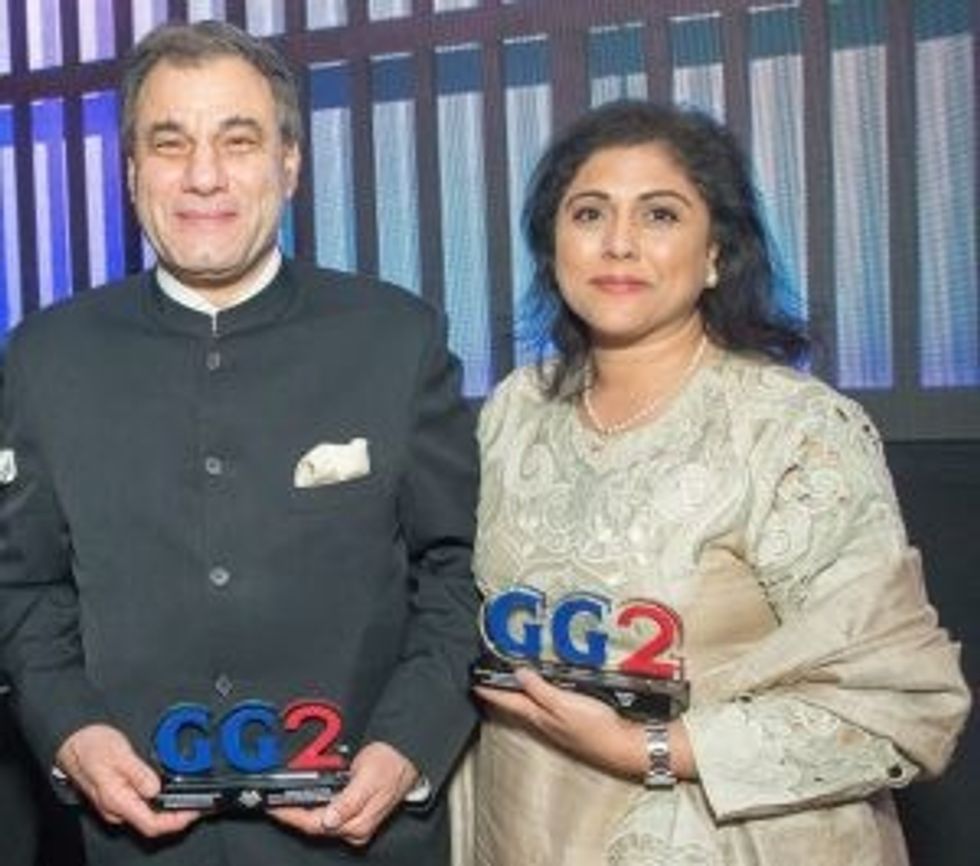
“I’m very proud to be leading our firm and I’ve got a very diverse board in terms of gender, ethnicity and social mobility – that for me is the role-modelling we want to achieve. But that is not reflected all through our organisation.”
Mehta said the organisation has introduced the strategy ‘Our KPMG: A fairer future for all’, which has set diversity and inclusion targets for 2030, that includes having a leadership team that consists of at least 40 per cent women, 20 per cent from ethnic minorities, and 29 per cent from lower socio-economic background.
“When I joined 30 years ago, the male-female ratio of our intake of graduates was 50/50, which is roughly the same now. But back then there were only two-three female partners. One in four of our partners are now female. We still have a long way to go, but that’s progress,” she said. “There are so many biases that are ingrained in society. I almost didn’t go to India (in 1993 to setup KPMG in the
country) because my manager at the time thought as an unmarried Asian woman, my family wouldn’t allow me to go.
“I think we are a lot more aware of these biases now and, as businesses, we have a huge responsibility to lead change in society.
“We want to recruit talent from all backgrounds, right? We have to do specific, focused work with areas of cultural and social mobility. We have to create pathways to attract different people with different interests so we can have an inclusive, supportive and diverse culture.”
Britain’s workforce has been boosted by an increase in immigration since implementation of the post-Brexit immigration rules, Home Office figures have shown. In total in 2021, there were 239,987 work-related visas granted. This was a 110 per cent increase on 2020 (114,528 visas) and 25 per cent higher than 2019 (192,559). Indians (70,099 visas) received the highest number of work visas last year. There were also 98,747 study visas handed to Indian nationals.
Immigration played a central role in the Brexit campaign during the 2016 EU referendum. But six years on, there has been a shift in attitude, with the British Future survey finding that 53 per cent of the public now believe the impact of immigration to be positive, while less than a third consider it negative.
While concerns that migrants take jobs from British workers were widespread in 2012, these have subsided over the years. Today, only a third see migration as having a negative impact on jobs, compared to two-thirds a decade ago.
The biggest change in attitudes involves the NHS, in part due to the role played by migrant healthcare workers during the pandemic.
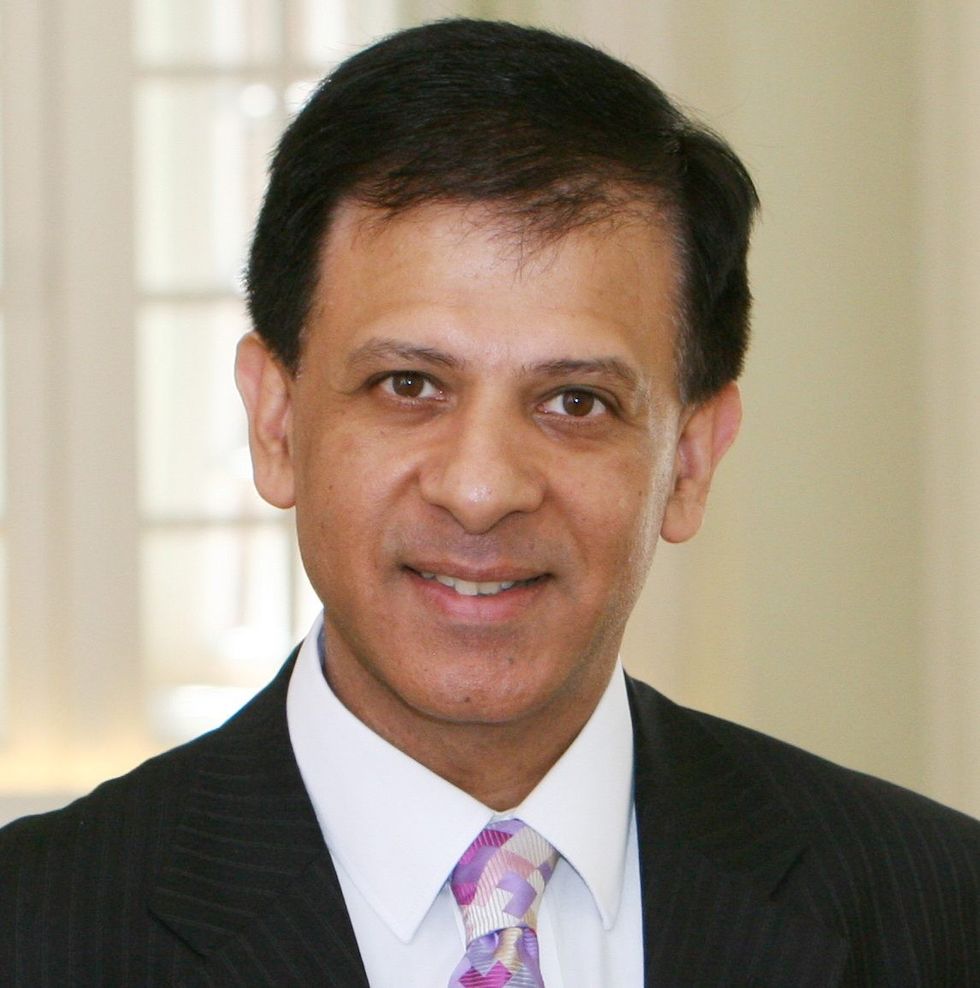
, BMA chair of council, said: “If the Covid-19 pandemic has taught us anything it is just how vital the NHS and its workforce is.”
According to the British Medical Association (BMA), international doctors make up around 29 per cent of the NHS workforce. But it still estimates that England is around 50,000 doctors short in comparison to comparable EU countries.
Dr Nagpaul has urged the government to recognise the importance of foreign doctors to the UK by granting them and their families automatic indefinite leave to remain. “If the government fail to act to reward experienced international doctors, then we risk worsening the current workforce pressures and backlog of care facing the NHS. In turn, the hidden cost of immigration barriers will inevitably be patient care.
“Granting International Medical Graduates (IMGs)/doctors, and their dependents, currently in the UK indefinite leave without charge would not only recognise their invaluable and selfless commitment to fighting Covid-19 in the UK but would also ensure that these doctors are able to continue to contribute their invaluable expertise to the NHS without the added concern of immigration status.
“We know from our members that the financial and mental burden of the immigration process is constant and huge. This is not something that doctors should have to worry about while caring for patients on the frontline.
“Other countries have taken steps to recognise and support their international workers’ contributions during the pandemic. Removing the financial and bureaucratic barriers in place for IMGs isn’t a huge ask or a difficult decision for the government to make but rather a vital one that must be taken to protect the health service and the lives of millions across the UK.”
In 2012, only 24 per cent felt that immigrants’ skills and labour were necessary to help Britain’s economic recovery. A decade later, in 2022, more than double (53 per cent) acknowledge the benefits of immigration.
Award-winning chef Cyrus Todiwala has seen the positive impact immigrants have had on the UK’s food industry. “One part of the Brexit vote did veer towards fear of being overrun by immigrants. But what was forgotten is that people of mixed colour and race actually do a vast majority of the ordinary and some of the most testing jobs in this nation.
“Brexit has left behind it a swathe of voids and vacancies everywhere with manpower never as valued as it is now. So more than anything it should help to bridge gaps and bring greater social cohesion. However the government and local bodies collectively need to ensure that more immigrants get paid work. All our effort needs to be made to make every immigrant feel they are a part of Britain and they are here to contribute.”
Lord Karan Bilimoria, who accompanied prime minister Johnson during his trip to India last month, thinks that immigration will be a key factor in any Free Trade Agreement (FTA) between the UK and India.
“The UK points-based immigration system is now more open to Indian workers than previous visa routes,” he said. “And there is much more to achieve. For our services sector, in particular, mobility is crucial as they rely on the movement of professionals across borders to help seal deals and complete projects.
“Businesses will be looking for the government of India to extend business visitor period from 90 to 180 days, like India has agreed with the other South-East Asian states.
“The UK and India have the huge advantage of the living bridge of 1.5 million people of Indian origin living in the UK, its most successful ethnic minority.
“Working together on an ambitious UK-India free trade agreement that slashes tariffs, improves the ability to move talent across borders as well as data, will be the crucial foundation for a deal that delivers for businesses.”
















 Pedro Pascal addresses fan backlash over playing Reed Richards at 50Getty Images
Pedro Pascal addresses fan backlash over playing Reed Richards at 50Getty Images 
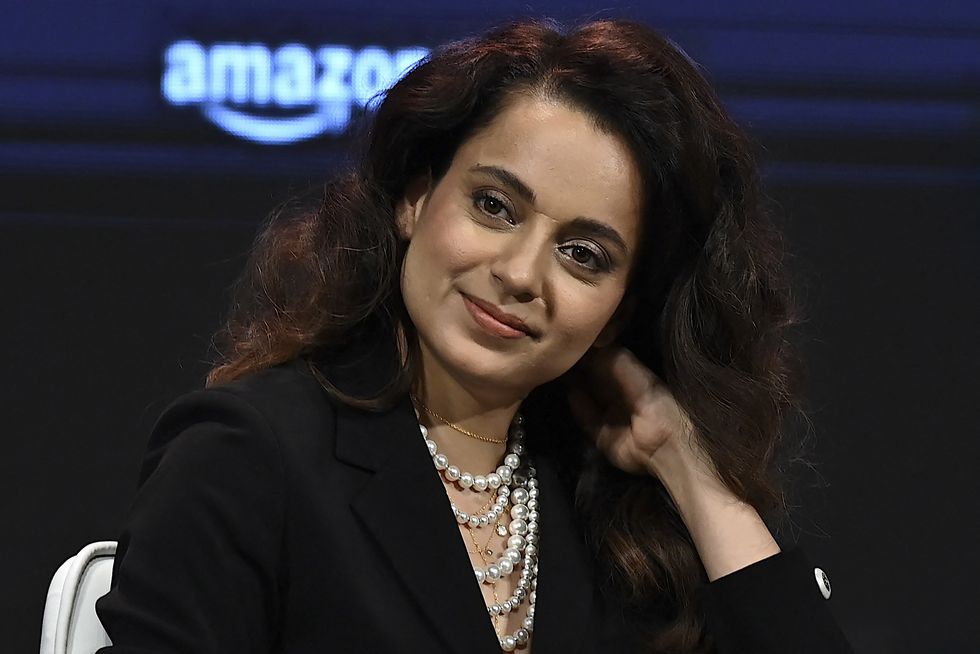 Kangana Ranaut speaks on equality and her role as a ParliamentarianGetty Images
Kangana Ranaut speaks on equality and her role as a ParliamentarianGetty Images  Kangana Ranaut calls equality a flawed idea, claims it’s ruining work ethic in today’s youthGetty Images
Kangana Ranaut calls equality a flawed idea, claims it’s ruining work ethic in today’s youthGetty Images Kangana Ranaut says belief in equality has created a ‘generation of morons’ in viral Times Now interviewGetty Images
Kangana Ranaut says belief in equality has created a ‘generation of morons’ in viral Times Now interviewGetty Images Kangana Ranaut blames equality for entitlement culture, says no two people are equalGetty Images
Kangana Ranaut blames equality for entitlement culture, says no two people are equalGetty Images

 Actress Bella Thorne and Charlie Puth attend the Y100's Jingle Ball 2016Getty Images
Actress Bella Thorne and Charlie Puth attend the Y100's Jingle Ball 2016Getty Images  Bella Thorne's commentInstagram Screengrab
Bella Thorne's commentInstagram Screengrab  Charlie Puth performs onstage at an interactive global eConcert liveGetty Images
Charlie Puth performs onstage at an interactive global eConcert liveGetty Images  Bella Thorne and Mark Emms attend a red carpet for the movie "Priscilla"Getty Images
Bella Thorne and Mark Emms attend a red carpet for the movie "Priscilla"Getty Images Charlie Puth and Brooke Sansone attend the 10th Breakthrough Prize CeremonyGetty Images
Charlie Puth and Brooke Sansone attend the 10th Breakthrough Prize CeremonyGetty Images